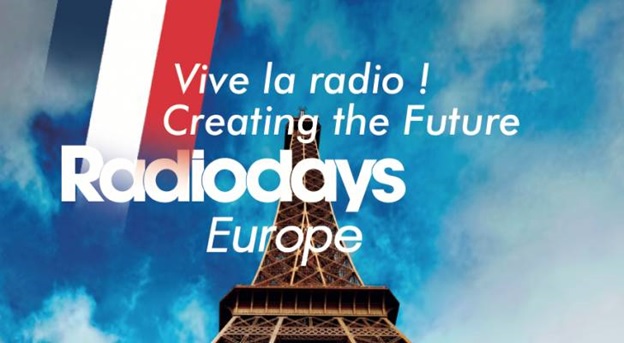
I don’t want to ruffle any feathers here in the U.S. of A., but after attending two Radiodays Europe conferences in the past three years, I’m here to tell you that some of the most novel and creative ideas are happening far away from the world of American radio. They’re occurring on a grand scale in places like Belgium, Portugal, Germany, Australia, and the UK.
To be fair, the systemic differences in American versus international radio are stark, and go a long way toward explaining why traveling thousands of miles to attend Radiodays Europe is worth the money and the time. Many, many of these global broadcasters fall under the “public” heading. That means their funding is solid, in most cases secured by taxes that subsidize these stations. While they all have performance goals, the intensity level is quite a bit different from the pressure cooker that American broadcasters endure 24/7/365.
But whether the playing field is level or not, it doesn’t change the hard truth that some amazing ideas – ones worth considering and stealing – are there for the taking at Radiodays. There’s a lot of innovation and experimentation happening in global radio, and at times, it is positively inspirational. Plus, there’s the benefit of seeing and hearing from broadcasters that few of us know, but most of us should get to know, making for a stimulating and at times, surprising environment.
A case in point was my own panel, “In-Car Radio: A Dashboard Disaster.” OK, I didn’t choose the title. But I can tell you that after having been a part of dozens of “connected car” sessions over the past five years, this one just felt different. That’s because it included the international flavor of Olivier Sancier who works for Peugeot-Citroën, along with Michael Hill who runs Radioplayer UK. Both of these executives bring a global perspective that you rarely see in the States, including at our DASH Conference.
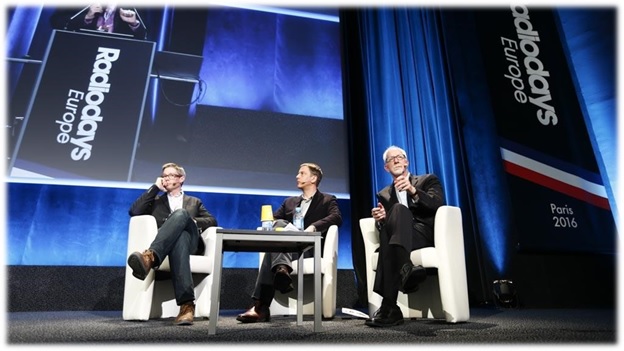
And that’s the intangible piece of Radiodays. The event itself is huge – 1,500 attendees representing 62 countries. That explains the diversity of thinking and a very different look at an industry that for most of you reading this blog is all you’ve ever known. Radiodays lived up to its Parisian theme: “Viva la radio! Creating the future.”
They run four concurrent tracks for two full days, so there are a lot of sessions. They are diverse, fascinating, and usually on topics that have enough general appeal to be interesting, but populated by people you simply don’t see at the usual radio conferences. There’s a link at the end of this post so you can peruse the sessions and their summaries.
There were a handful of American broadcasters in attendance, and it was good to see some familiar faces. Val Geller, Michael Harrison, James VanOsdol, Dean Cappello, Kurt Hansen, Sarah van Mosel, John Rosso, and a few others on the exhibit floor showed up to share ideas, network, and learn from each other. And I would venture to say that most, if not all, of them would tell you there’s more radio innovation taking place in some pretty faraway places than what we’re used to seeing in the U.S.
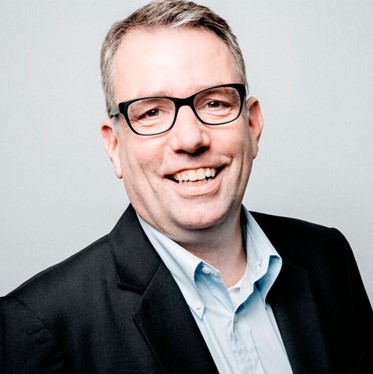
A favorite session was “Cooking in the Radio Labs,” a look at what world broadcasting creative teams are up to. George Wright (the BBC), Floris Daelemans (VRT Start-up, Belgium), and Natacha Mercure and Robert Nadeau (Radio-Canada) were on stage, deftly moderated by the UK’s Nick Piggott. All of these execs take the “hacker’s approach” with their teams, trying new radio experiments, and using clever audience research and feedback to iterate them and make them better.
I’ve been to dozens of social media panels over the years, but none was more inspiring than listening to the engaging wisdom of Pedro Monteiro (Expresso/Portugal) and Martin Liss (Mediakraft/Germany). Neither talked about monetizing social or the best times of day to post status updates. Instead, they spoke about what it takes to connect with their listeners in the social space, as well as the exhilaration of learning how to communicate on platforms like Snapchat and Twitter. Liss talked about the power of sharing, and reminded attendees to stop referring to “the audience,” and instead, use terms like “fans” and “the community” to describe this new sense of connectedness.
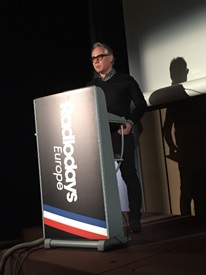
One place where America (and North America) shined was in podcasting, a digital content area where Radiodays called on key U.S. talent and producers. Sarah van Mosel (Acast), Dean Cappello (WNYC), and a Canadian podcast producer and audio artist, Kaitlin Prest, all headed up sessions that were especially interesting and revealing.
Cappello offered five key takeaways that can lead radio companies on a path toward creating a positive podcasting environment. Among them, “Always look for the 13th idea,” a suggestion to dig deeper into the creative process to find the best concept and topic possibilities. We know this is the case from our brainstorming experience, because the best ideas rarely happen early on in the process.
Cappello also stressed the value of taking “the long view” when it comes to podcasting. He pointed out that “You cannot make a hit. You create an ecosystem” that fosters successful audio content. WNYC’s podcasting efforts are proof this discipline pays off.
Prest is the force behind The Heart, a podcast about relationships and sex. Her “Movies in Your Head” session stressed the importance of sound design, something that often seems to get lost in translation among many podcasters. She played some provocative clips where it was clear that sound and environment very much better to appreciating the content.
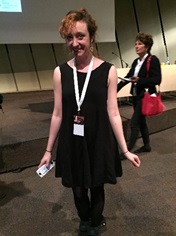
As she reminded the room, “There’s so much McDonald’s radio,” which means it’s important to “make something special.” Her goal with her podcasts is to produce audio that earns the same respect as literature or film. And The Heart underscores the essential truth that “radio is the best place for people to tell secrets.”
One of the big moments was when the aforementioned Michael Hill launched a phone with DAB/DAB+ inside (the digital audio broadcasting standard in the UK), and we got to watch it seamlessly switch between the broadcast platform and the stream, depending on signal quality.
Mike pulled off the demo, live on stage, before a full auditorium of attendees. Like a “hybrid” car that automatically moves back and forth between gas and electricity, this new LG Stylus 2 is a nice mid-range Android product that saves on battery life and is more data-efficient than streaming. Yes, some of you are thinking NextRadio, but the switching between broadcast and stream is the secret sauce here.
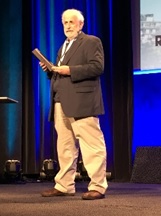
Finally, Talkers.com chieftain, Michael Harrison, charmed the Radiodays crowd with a great talk about radio, technology, and innovation. He noted that “the more things change, they more they stay the same” (or “plus ça change, plus c’est la même chose”), a phrase coined by Jean-Baptiste Alphonse Karr more than 150 years ago, Mike spoke a common language that connected with attendees from the many countries represented at this conference.
And that was indeed the case at Radiodays Europe where panels, keynotes, and sessions were well-attended by engaged broadcasters from around the world. They love radio as much as we do, evidenced by Kamila Ceran from Poland’s Tok FM, where there’s immense pressure on her station and her staff because of a change in government. In fact, she told the room, “I am committing treason by speaking to you today.”
Sorry, but that kind of thing never happened at an R&R Convention. And it was a powerful eminder that our freedom in American radio is to be cherished and not to be taken for granted.
Why do I love Radiodays? Because I meet people and see and hear things at this convention that I simply don’t get to experience anywhere else. Like CES, there’s a world of innovation and optimism at this event. But unlike that Vegas circus, this conference is solely dedicated to furthering radio. And as I cleared Customs, I felt inspired to talk about the positive spirit that is embedded in the soul of radio professionals all over this planet.
For capsules of all the Radiodays Europe sessions and panels, go here. A special thanks to my friend and radio’s futurologist James Cridland.
- How Will Radio Fare In The Battle For The Fourth Screen? - April 3, 2025
- Like A Pair Of Old Jeans - April 2, 2025
- What’s Fair Is Fair - April 1, 2025




Fred, I could not agree with you more. The Radio Days Europe conference is an extraordinary gathering of people who are passionate about the business. It is always a showcase for great, innovative, ideas (many that are completely foreign (ha!) to U.S. broadcasters.
What I find most interesting about RDE is the level of participation in the actual conference program from senior media executives from across Europe. They attend and contribute to the programming, marketing, and technical sessions in a meaningful way. I’d like to see more of that at our American radio conferences.
Thanks for your post raising awareness of this fantastic international radio event.
John
John, great to hear from you, and thanks so much for the observations. Your point about diverse participation is spot on. International broadcasters clearly see the value in their employee base learning from these great panels and sessions, not to mention the benefits of networking. Again, the culture is less dog-eat-dog than in the US, and as a result, they clearly benefit. Also, great to see you at RDE.
Few month ago I changed a radio station and moved to another city. Now I live in the capital of Poland, Warsaw. I don’t have too much time to write comments, but I still read your blog. And I’m so jealous and mad… Because I can’t be in Paris on Radiodays Europe. Of course, always great read. 🙂
Pawel, thanks for the kind comments.